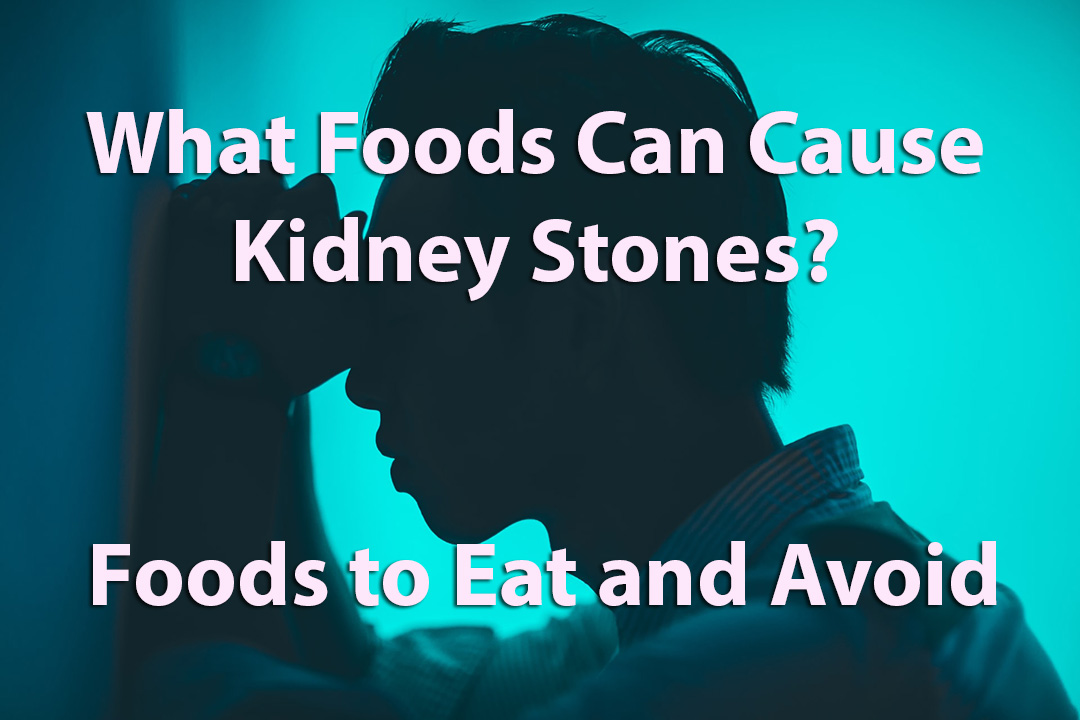If you have ever experienced the sharp, intense pain of a kidney stone, then you know it is not something to take lightly. For millions of people around the world every year, this nightmare may become a reality any second.
What are kidney stones?
Kidney stones are tiny crystals or pieces of minerals that form within the kidneys during urination. These stones can form as early as one week after starting a new diet or lifestyle and sometimes they can become life threatening.
If you have ever woken up in the middle of the night from pain and had to throw up, then you know what it is like to be fully awake with kidney stones in your bladder. Fortunately, kidney stones usually do not cause death or major problems unless they get stuck in your ureters (the tubes that carry urine out of the kidneys) which can block how much fluid gets into your bladder and eventually cause you to lose massive amounts of urine.
What foods can cause kidney stones?
The most common foods that will cause stones are sugar, meat, and animal protein. It is important to have a diet with lots of vegetables, fruits, and whole grains. Reducing animal protein in your diet will also help prevent these stones from forming. Dairy products are also a very big culprit when it comes to kidney stones. This can also be true for people who do not have a good digestion.
If you eat chicken, fish, or other meats at night then this can increase the risk of developing kidney stones by almost 200%. The chance for developing kidney stones gets higher as the animal protein intake gets higher. Also, people who eat red meat more than 2 to 3 times a week have a 60% greater chance of developing kidney stones.
Other foods that can cause kidney stones are foods made with corn, which is very high in sugar. Corn contains about 25 grams of sugar in one serving. This means that one single meal can increase your chances for kidney stone development by as much as 200%.
What to eat to prevent forming kidney stones?
Most people find that their symptoms improve when they reduce the amount of animal protein in their diets and also when they take a daily dose of an acid reducer.
Reducing consumption of meat increases a person’s metabolism and helps them lose weight. People who shed pounds have less calcium in their urine and less oxalate in their urine.
Also, drinking plenty of water along with your meals will help keep your kidneys healthy and will keep your urine clean and prevent kidney stones from forming. The more water is consumed the better it helps the kidneys.
A diet rich in fruits and vegetables is very healthy for the urinary tract, but one food can cause trouble, namely, grapefruit. Grapefruit contains a compound that can interact with certain medications. Basically, grapefruit blocks your body’s ability to process drugs that are eliminated through the kidneys.
This problem occurs with only a few drugs, but if you take one of them or are thinking about starting treatment for a medical condition, this could be a serious concern.
Also, making sure you are very active is important if you have a high risk for kidney stones because being active makes your kidneys work more efficiently. If you do not get much exercise, then that may increase the risk for kidney stones by as much as 40% to 60%.
List of vegetables to eat:
- Beets
- Lettuce
- Carrots
- Cucumbers
- Swiss chard
List of fruits to eat:
- Berries
- Melons
- Pineapple
- Pomegranate
- Strawberries
Precautions
If you consume too much water, then it can cause an imbalance in your electrolyte levels and that can lead to headaches, nausea, and vomiting. Be sure to consult with your doctor before changing your diet in a radical way.
If you have questions about whether or not grapefruit and your medicine might interact badly, check with your health care provider before eating grapefruit or drinking grapefruit juice.
Is there a link between kidney stones and gluten intolerance?
The answer, according to new research, is yes. The study found that people who are intolerant to gluten are three times more likely to develop kidney stones than those who do not have this allergic reaction to the protein found in wheat and related grains.
A possible explanation for this connection is that proteins in foods such as wheat can interfere with how the kidneys detoxify calcium (a necessary process for preventing stones). Other research has also shown that gluten intolerance may cause changes in the gut flora, which could lead to the development of kidney stones.
The information in this article is solely for informational purposes and is not intended to be a substitute for professional medical advice, diagnosis or treatment. Always seek the advice of your physician or other qualified health provider with any questions you may have regarding a medical condition. Never disregard professional medical advice or delay seeking it because of something you have read online.
